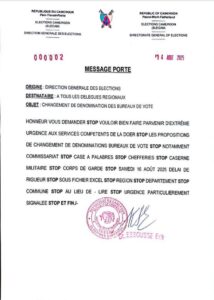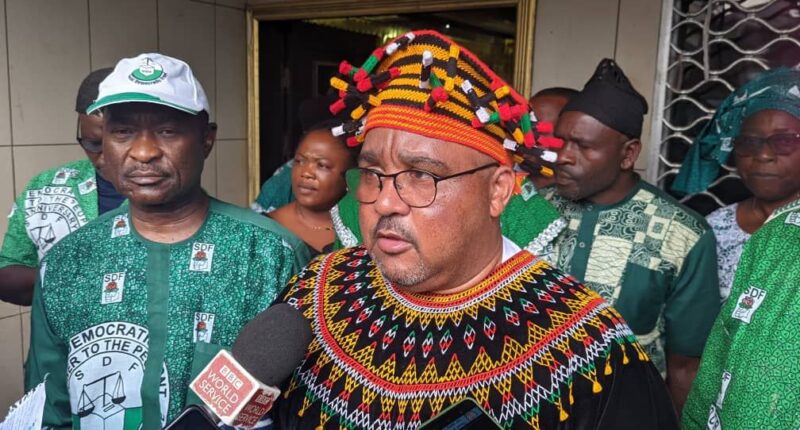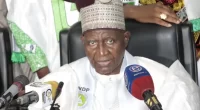Skepticism Looms as SDF’s Joshua Osih Secures Polling Station Relocation Victory
By Andre Momo
In a surprising turn of events, Social Democratic Front (SDF) presidential candidate Hon. Joshua Osih has notched a legal win, compelling Elections Cameroon (ELECAM) to relocate polling stations ahead of the October 12, 2025, election. As of today, August 15, 2025, at 05:21 PM BST, ELECAM has ordered the immediate shift of voting sites from palaces, chieftaincies, police stations, military barracks, and other restricted areas to public premises accessible to all voters. This follows Osih’s formal complaint on July 21, 2025, citing Section 96(4) of the Electoral Code, which mandates open and accessible polling locations—a move hailed as a step toward transparency and fairness. But given ELECAM’s notorious history of electoral fraud, can we truly trust this to be a genuine reform?

Osih’s victory stems from a well-placed legal challenge, forcing ELECAM to address a long-standing grievance that polling stations in restricted zones favored manipulation by the ruling Cameroon People’s Democratic Movement (CPDM). The decision, if implemented, could level the playing field, allowing voters—especially in contested regions like the Northwest and Southwest—greater access to cast their ballots without intimidation. Yet, skepticism runs deep. ELECAM, tasked with overseeing fair elections, has a track record marred by allegations of rigging, from the 2018 presidential poll that handed Paul Biya another term to countless local elections tainted by irregularities. Promises of transparency have often crumbled under the weight of political pressure from Yaoundé.
While the relocation order sounds promising, the devil lies in the execution. Will ELECAM truly ensure these new sites remain free from CPDM interference? Or will this be another hollow gesture, swiftly undermined by last-minute changes or voter suppression tactics? The Anglophone crisis, with its ongoing war and military presence, adds another layer of doubt—public premises in these regions could still be compromised if soldiers or regime loyalists hold sway. Osih’s win is a bold step, but without robust monitoring and international oversight, it risks being another chapter in Cameroon’s saga of electoral deception.
As the clock ticks toward October 12, all eyes are on ELECAM. Joshua Osih and the SDF deserve credit for pushing this boundary, yet history warns us to temper our optimism. True fairness will require more than a relocation order—it will demand a seismic shift in a system long rigged to protect Biya’s 43-year reign. For now, hope flickers, but trust remains hard-earned.





